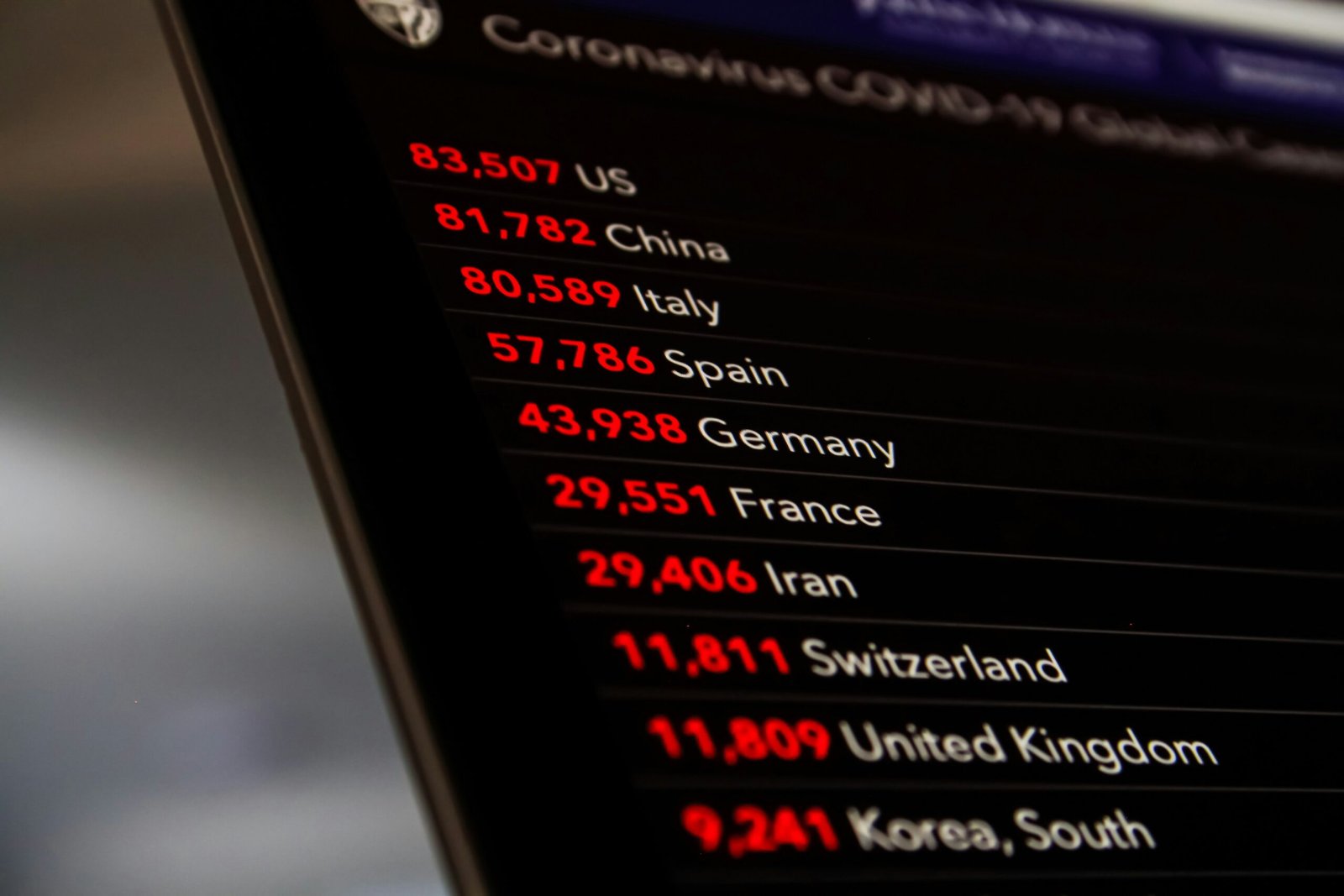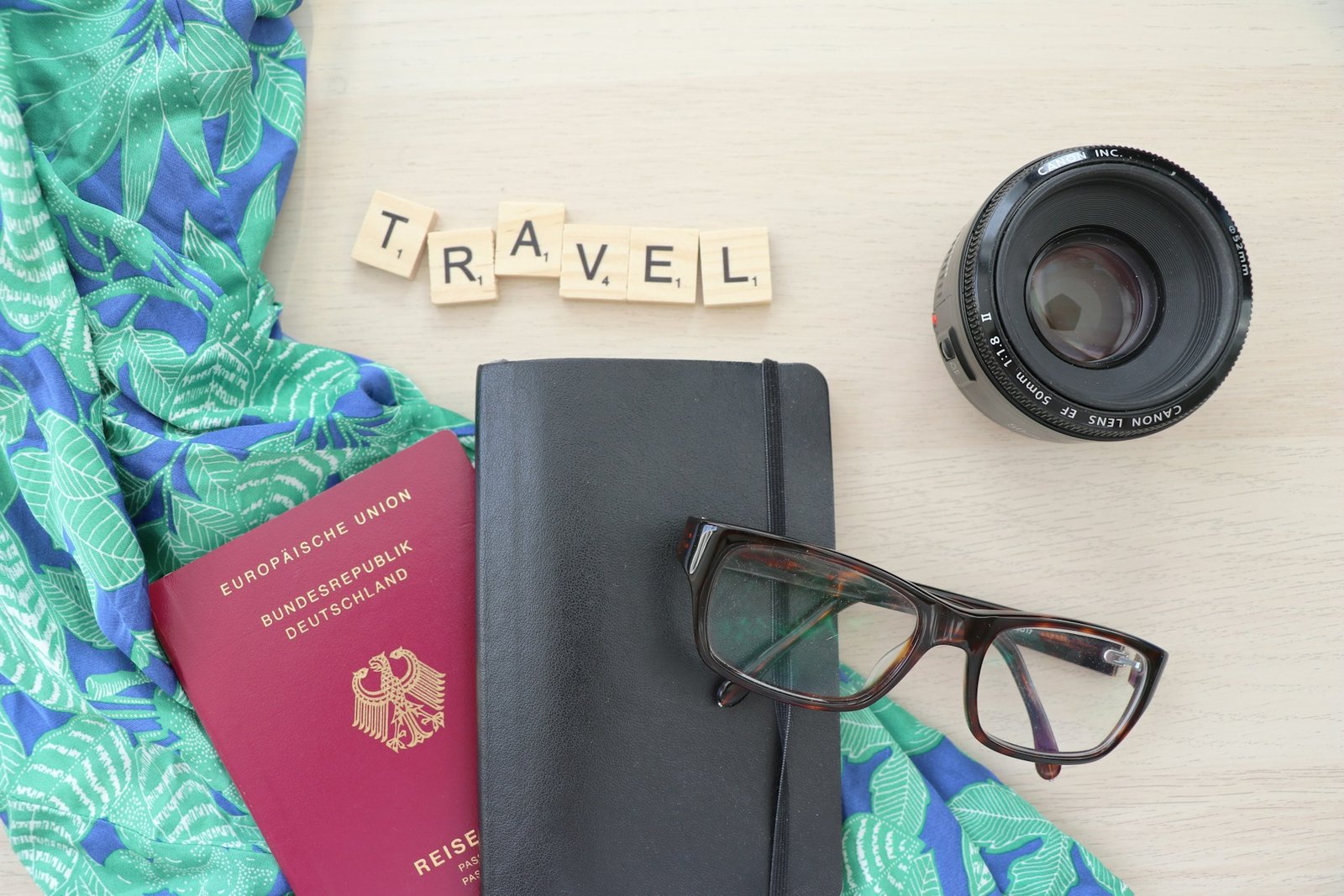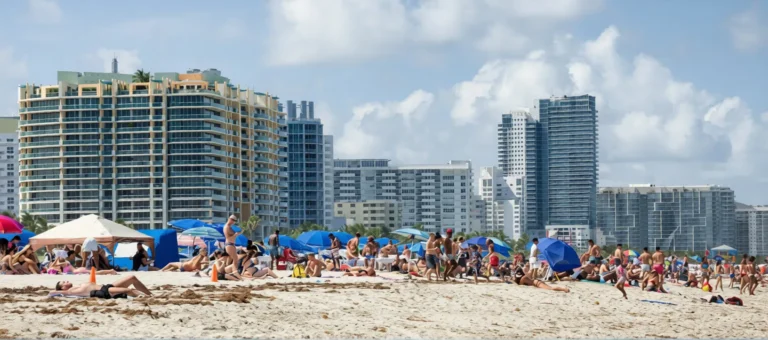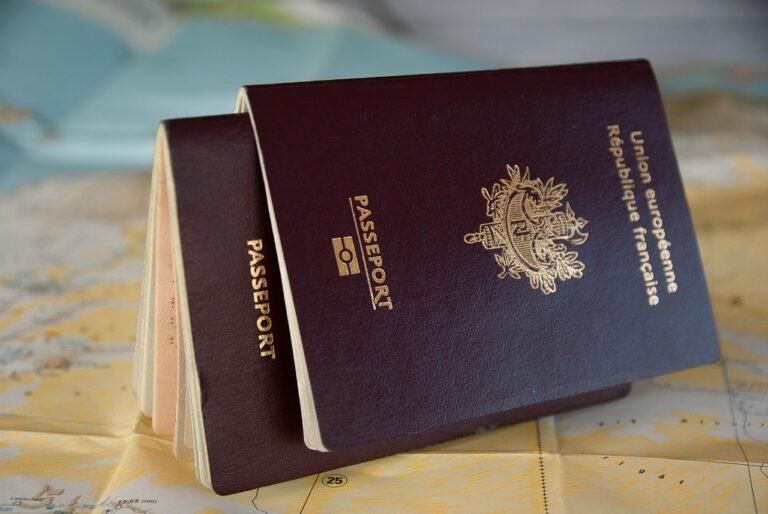
The Great Travel Awakening
Traveling on holiday can be easy if you have the right tips when you are making your plans. Let me tell you something that happened to me last Tuesday. I was scrolling through Instagram (as one does when avoiding actual work), and I stumbled upon a photo of my college roommate sipping wine in a cobblestone square in Prague. My immediate reaction wasn’t the usual eye-roll at social media bragging—it was pure, unadulterated envy mixed with a healthy dose of “what the hell am I doing with my life?”
That’s when it hit me: we’re not just in the era of revenge travel anymore. We’ve evolved. Welcome to Revenge Travel 2.0.
If you missed the memo, revenge travel was that beautiful, chaotic period post-pandemic when everyone collectively decided that life was too short for staycations and started booking flights like they were going out of style. But here’s the thing—that was just the appetizer. The main course is happening right now, in 2025, and it’s serving up opportunities that would make even the most seasoned travel hacker weep with joy.
Why 2025 is Your Travel Golden Ticket
The Perfect Storm of Affordability
Remember when your friends were dropping $3,000 on a weekend trip to Tulum because everything was either booked solid or priced like liquid gold? Those days are officially over. The travel industry has finally caught up with demand, and competition is fierce. Airlines are practically throwing deals at us, hotels are offering packages that would have been unthinkable two years ago, and destinations that were once the exclusive playground of trust fund kids are suddenly accessible to us mere mortals.

I recently booked a round-trip flight to Barcelona for $340. Three years ago, that same route would have cost me my firstborn child and a kidney. The travel gods have smiled upon us, and frankly, it’s about time.
The Shoulder Season Renaissance
Here’s something most people don’t realize: shoulder seasons in 2025 are better than peak seasons used to be. Climate change has extended pleasant weather windows (silver lining, anyone?), and destinations are embracing year-round tourism with open arms. That means fewer crowds, better prices, and experiences that aren’t filtered through a sea of selfie sticks.
Technology That Actually Works
Gone are the days of refreshing booking sites until your laptop overheats. Travel apps have evolved into sophisticated tools that can predict price drops, suggest alternative routes, and even help you navigate visa requirements without pulling your hair out. AI-powered planning isn’t just a buzzword anymore—it’s your secret weapon for creating the perfect itinerary without spending hours researching.
The Art of Dream Travel on a Real Budget
Start with the Why, Not the Where
Before you start Pinterest-boarding your way to financial ruin, ask yourself: what kind of experience do you actually want? Are you craving cultural immersion, adrenaline-pumping adventures, or just really good food and wine? Once you nail down your travel personality, you can find destinations that deliver those experiences without the luxury price tag.
For instance, if you’re chasing that Mediterranean villa vibe, consider Portugal’s Algarve region instead of the French Riviera. You’ll get the same stunning coastline, charming villages, and incredible cuisine at a fraction of the cost. Plus, you’ll actually be able to afford dinner at restaurants that don’t require a second mortgage.
The Power of Strategic Timing
Flexible dates are your best friend. I’m talking about being willing to leave on a Tuesday instead of Friday, or extending your trip by a day if it saves you $200. Use fare comparison tools like Google Flights or Skyscanner’s “whole month” view to spot the sweet spots.
Here’s a pro tip that saved me $800 on a Japan trip: book your outbound and return flights separately. Sometimes mixing airlines or taking a slight detour can slash your costs dramatically. Yes, it requires a bit more planning, but your bank account will thank you.
Accommodation Hacks That Actually Work
Hotels are great, but they’re not always smart money. Here’s what I’ve learned after years of trial and error:
Airbnb for longer stays (5+ nights): You’ll often get weekly discounts, plus having a kitchen means you’re not hemorrhaging money on every meal.
Boutique hotels for shorter trips: They’re usually cheaper than chains and offer way more personality. Plus, the staff actually knows the area and can point you toward hidden gems.
Consider alternative locations: Stay 20 minutes outside the city center and use public transport. You’ll save money and probably see more authentic local life.

Where to Go in 2025: The Insider’s List
Eastern Europe’s Golden Moment
Countries like Romania, Bulgaria, and North Macedonia are having their moment, and honestly, it’s about time. These destinations offer everything Western Europe does—stunning architecture, rich history, incredible food—at prices that won’t make you question your life choices.
I spent a week in Bucharest last fall and lived like royalty on $50 a day. The city has this fascinating mix of Belle Époque elegance and communist-era brutalism that creates a unique aesthetic you won’t find anywhere else. Plus, the nightlife rivals Berlin’s, and the coffee culture puts Milan to shame.
The New Southeast Asia
Vietnam, Thailand, and Cambodia are still incredible values, but the real opportunities are in places like Laos, Myanmar (when travel advisories permit), and the Philippines. These destinations offer the same tropical paradise experience with fewer tourists and lower prices.
Africa’s Renaissance
Morocco, Egypt, and South Africa have always been on travelers’ radars, but countries like Ghana, Rwanda, and Senegal are emerging as incredible alternatives. They offer rich cultural experiences, stunning landscapes, and warm hospitality at prices that make sense.
The Money-Saving Strategies That Actually Move the Needle
Credit Card Wizardry
If you’re not using travel rewards credit cards, you’re basically setting money on fire. But here’s the thing—you need to be strategic about it. Focus on cards that offer sign-up bonuses worth at least $600 in travel value, and always pay them off completely to avoid interest charges.
I’ve funded entire trips using points from everyday spending. The key is to put all your regular expenses (groceries, gas, bills) on your travel card and pay it off immediately. It’s like getting a small discount on everything you buy.
The Art of the Deal Hunt
Set up price alerts for your dream destinations. Apps like Hopper, Secret Flying, and Scott’s Cheap Flights (now Going) will notify you when prices drop. I once scored a $180 round-trip ticket to Iceland because I had alerts set up for months.
Be willing to pivot. If Barcelona is expensive but Madrid is cheap, consider flying into Madrid and taking a high-speed train to Barcelona. Sometimes the scenic route is also the economical route.
Local Living Strategies
Eat where locals eat. That restaurant packed with tourists charging $25 for pasta? Skip it. Find the place where office workers grab lunch—it’ll be better and cheaper.
Use public transport. Not only is it more affordable, but you’ll see the city like a local. In many European cities, a day pass costs less than a single taxi ride.
Shop at local markets. Even if you’re staying in a hotel, grab snacks, fruit, and drinks from local markets instead of tourist shops. You’ll save money and have more authentic experiences.
The Reality Check: Common Pitfalls to Avoid
The Instagram Trap
That overwater bungalow in Bora Bora looks amazing on social media, but it might not be worth going into debt for. Sometimes the most memorable travel experiences happen in places you’ve never heard of, with people you meet by accident.
I still talk about a random night in a tiny Romanian village where I got invited to a local wedding more than I talk about my expensive resort vacation in Cancun. Authentic experiences don’t always come with five-star price tags.
The Overpacking Epidemic
Pack less, experience more. Every piece of luggage you bring costs money—whether it’s airline fees, taxi surcharges, or the physical toll of dragging it around cobblestone streets. Stick to a carry-on and one personal item if possible.
The “I’ll Save Money Later” Fallacy
Don’t book a cheap flight and then blow your budget on everything else. Travel spending is like water—it finds a way to expand to fill whatever container you give it. Set a realistic daily budget and stick to it.
Making It Happen: Your 2025 Action Plan
Step 1: Define Your Travel Goals
Write down three trips you want to take this year. Be specific about what you want to experience, not just where you want to go. This clarity will help you make smart decisions when deals pop up.
Step 2: Set Up Your Deal-Finding Infrastructure
- Download fare comparison apps
- Sign up for airline newsletters (they often have exclusive deals)
- Follow travel deal accounts on social media
- Set up Google Alerts for your target destinations
Step 3: Create a Travel Fund
Even if it’s just $50 a month, having a dedicated travel fund removes the “I can’t afford it” excuse when great deals appear. Automate the savings so you don’t have to think about it.
Step 4: Book Something
This might sound obvious, but the biggest travel mistake is waiting for the “perfect” time. There’s no perfect time. Book something, even if it’s just a weekend trip a few hours away. Travel momentum builds on itself.
The Bottom Line
Revenge Travel 2.0 isn’t about spending more money—it’s about spending smarter. It’s about recognizing that the world is more accessible now than it’s been in years, and that your dream trip doesn’t have to remain a dream.
The opportunities are there. The deals are real. The only question is: are you ready to stop scrolling through other people’s travel photos and start creating your own?
Your future self, sipping wine in that cobblestone square (or whatever your version of paradise looks like), will thank you for taking action today.
Frequently Asked Questions
Q: What is revenge travel and why is 2025 the best year for it? A: Revenge travel refers to the surge in travel bookings as people make up for lost time during the pandemic. 2025 is ideal because travel prices have stabilized, destinations are less crowded, and there are more deals available than in previous years.
Q: How can I find the cheapest flights for my dream trip? A: Use flexible date searches, set up price alerts, consider alternative airports, and book Tuesday-Wednesday departures. Apps like Google Flights, Skyscanner, and Hopper can help you track price trends.
Q: Is it really possible to travel affordably in 2025? A: Absolutely. With strategic planning, flexible timing, and smart booking techniques, you can significantly reduce travel costs. Shoulder seasons, alternative destinations, and travel rewards programs all contribute to affordability.
Q: What are the best budget travel destinations for 2025? A: Eastern Europe (Romania, Bulgaria), Southeast Asia (Vietnam, Philippines), and emerging African destinations (Ghana, Rwanda) offer incredible value. Portugal and Mexico also provide great experiences at reasonable prices.
Q: How much should I budget for a dream trip? A: This depends on your destination and travel style, but a good rule of thumb is to budget 20-30% more than your initial estimate. For international trips, budget $100-150 per day for mid-range travel including accommodation, food, and activities.
Q: Are travel rewards credit cards worth it for vacation planning? A: Yes, if used responsibly. Travel rewards cards can provide significant value through sign-up bonuses, points accumulation, and travel perks. Always pay off the full balance to avoid interest charges.
Q: When is the best time to book international flights? A: Generally, book international flights 2-3 months in advance for the best prices. However, last-minute deals can appear, especially for off-peak destinations and shoulder seasons.
Q: How can I save money on accommodation while traveling? A: Consider Airbnb for longer stays, book directly with hotels for better rates, look for properties slightly outside city centers, and read reviews carefully to avoid hidden fees.
Q: What’s the difference between peak and shoulder season travel? A: Peak season is when destinations are most crowded and expensive (summer in Europe, winter in tropical destinations). Shoulder season offers better prices, fewer crowds, and often pleasant weather.
Q: How do I avoid tourist traps and overpaying while traveling? A: Research local customs and prices, eat where locals eat, use public transportation, and be wary of attractions that seem too touristy. Apps like TripAdvisor can help identify authentic experiences.
Q: Can I really plan a dream trip without breaking the bank? A: Yes, with careful planning and smart choices. Focus on experiences rather than luxury, travel during off-peak times, and use resources like travel deal websites and reward programs to maximize your budget.
Top Travel Products and Recommendations
Flight Booking Platforms:
- Google Flights (flights.google.com) – Best for flexible date searches and price tracking
- Skyscanner (skyscanner.com) – Excellent for finding alternative airports and routes
Accommodation:
- Airbnb – Ideal for longer stays and local experiences
- Booking.com (booking.com) – Wide selection with frequent deals and free cancellation
Travel Credit Cards:
- Chase Sapphire Preferred – Excellent sign-up bonus and travel protection
- Capital One Venture X – High-value rewards and travel benefits
Travel Apps:
- Hopper – AI-powered price predictions for flights and hotels
- Trail Wallet – Simple expense tracking while traveling
- World Nomads (worldnomads.com) – Comprehensive coverage for adventurous travelers
- Allianz Travel Insurance (allianztravelinsurance.com) – Reliable coverage with good customer service
Luggage:
- Away Carry-On (awaytravel.com) – Durable with built-in charging port
- Osprey Farpoint 40 – Versatile travel backpack
Money Management:
- Wise (formerly TransferWise) (wise.com) – Best exchange rates for international transfers
- Charles Schwab Investor Checking – No foreign transaction fees
Destination Research:
- Rome2Rio (rome2rio.com) – Comprehensive transport route planning
- Culture Trip (theculturetrip.com) – Local insights and hidden gems
Budget Destinations:
- Portugal – Affordable Western Europe with great weather and culture
- Vietnam – Incredible food and experiences at low costs
- Romania – Stunning architecture and rich history at budget prices
- Mexico – Diverse experiences from beaches to cultural sites
- Philippines – Tropical paradise with affordable island hopping
Meta Description: Discover why 2025 is the perfect year for revenge travel. Learn insider tips for booking dream trips affordably with our comprehensive guide to budget-friendly travel strategies.
Main Keywords Used:
- Primary: Revenge travel 2025, dream trip planning, budget travel 2025
- Secondary: Affordable travel destinations, travel deals 2025, budget vacation planning, cheap international flights, travel on a budget, best travel destinations 2025, travel savings strategies, vacation planning tips, travel rewards credit cards, shoulder season travel







Nassau Airport To Riu Paradise Island offers seamless travel with luxury. Enjoy reliable airport transfer to Riu Paradise Island, whether you choose a Nassau to Riu Paradise shuttle, private car to Riu Paradise Nassau, or a premium Riu Paradise Island limo service.
Our main priority is to provide comfort, and elegance in our luxury cars and limousines. Our goal is to offer seamless airport transfers in Dubai for both personal and professional trips.
Ride in sophistication with Stretch Limo Dubai. Whether you need Dubai Stretch Limo Hire for a wedding or corporate event, we’ve got you covered. Dubai Limousine with Driver ensures class and comfort. Rent Stretch Limo Dubai or select the impressive Hummer Stretch Limousine Dubai.